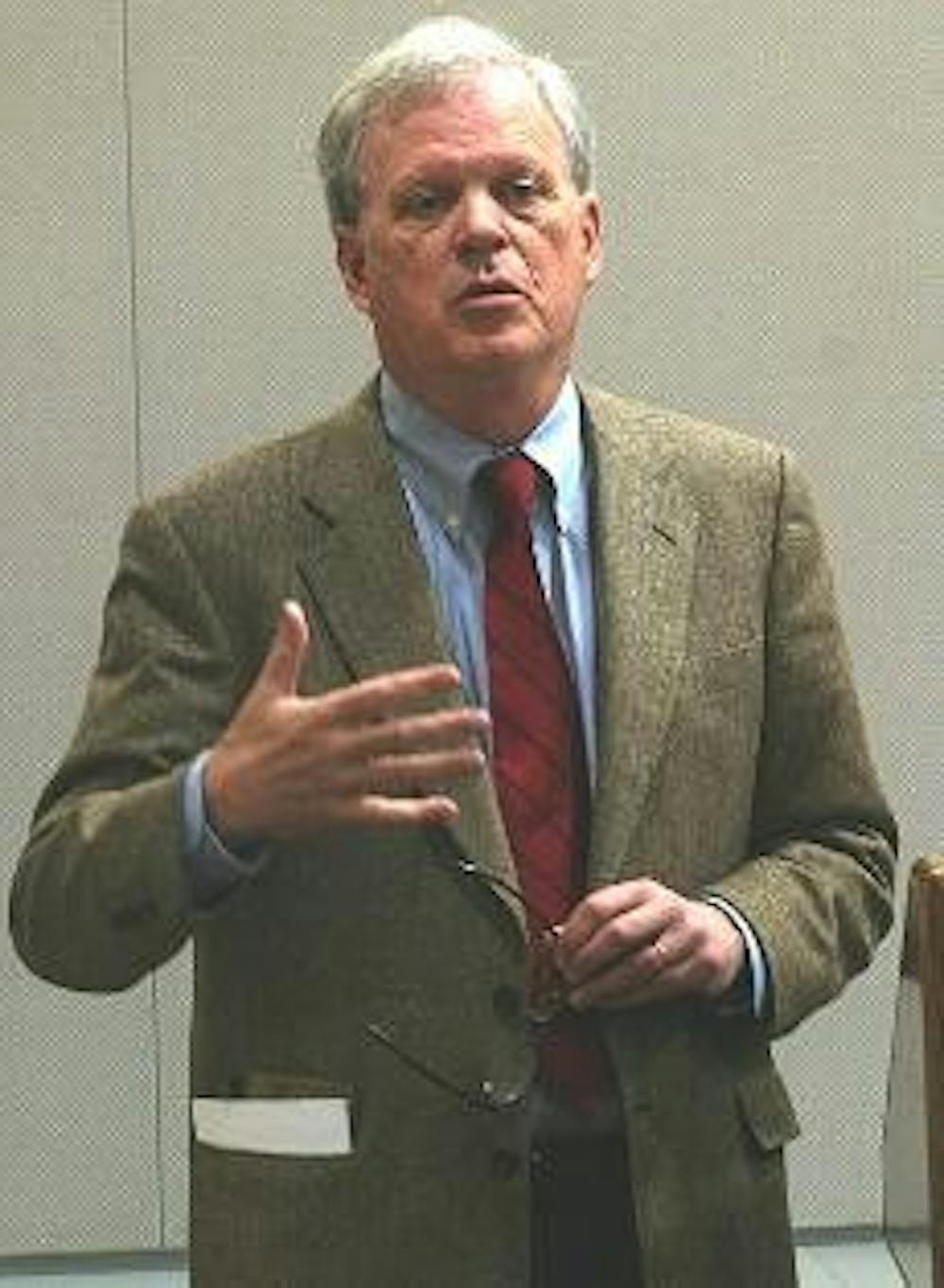European countries have lost their military capacity and are increasingly outsourcing their military needs to the United States, said Stanford University history professor and author James Sheehan.
Most countries in Europe have focused on social and economic development in recent decades, as they shift their attention from fighting wars to improving the lives of their citizens, he said at "The Rise of the Civilian State in Europe, 1945-2006" a discussion that took place Friday in Mary Graydon Center.
"The European state is now in its essence a civilian state," Sheehan said.
He defined a civilian state as a country that values social development over military buildup. European nations try to solve problems with compromise and debate, rather than the military strategies they focused on until the late part of the 20th century, he said.
European countries no longer need to worry about internal conflicts because "Germany and France are no more likely to go to war with each other than the United States and Canada," Sheehan said.
After World War II, most European countries had systems requiring mandatory military service of their male citizens, Sheehan said. However, in the 1960s public backing for the military began to decline and defense spending shrank in nearly every country. Support for military spending diminished across Europe through the last half of the century, he said.
Most countries in Europe no longer require military service of their citizens. Germany, however, still requires its male citizens to participate in military or civil service. According to Sheehan, Germany's national service program still exists because the option to do social service provides the state with welfare and civil service programs, which are "what people really care about."
It makes sense that European countries became economically powerful while they were weakening militarily, Sheehan said, because they were directing their resources away from defense and toward social spending. He said the military downsizing is "by and large something to celebrate - something to be pleased about."
However, the widespread nature of the civilian state makes Europe's dependence on the U.S. military "more and more difficult to bear" as international conflicts persist, Sheehan said.
European countries favor social and economic development for the same reasons they oppose conflict, he said. Their growing sentiment that military force is unnecessary has lead Europeans to be more skeptical of the way the United States has dealt with terrorism and foreign conflict, Sheehan said.
Some AU students say they think a void left by Europe's declining military strength is not one that the United States should attempt to fill.
"I don't know if Europe necessarily wants us over there [in Iraq]," said Steve Erdman, a sophomore in the School of Communication.
Mike Kerman, a sophomore in the School of Public Affairs, said the U.S. military has overextended its international military efforts.
"The more we go into other countries, the more enemies we're going to make," Kerman said. "Going into Iraq hasn't solved anything"





